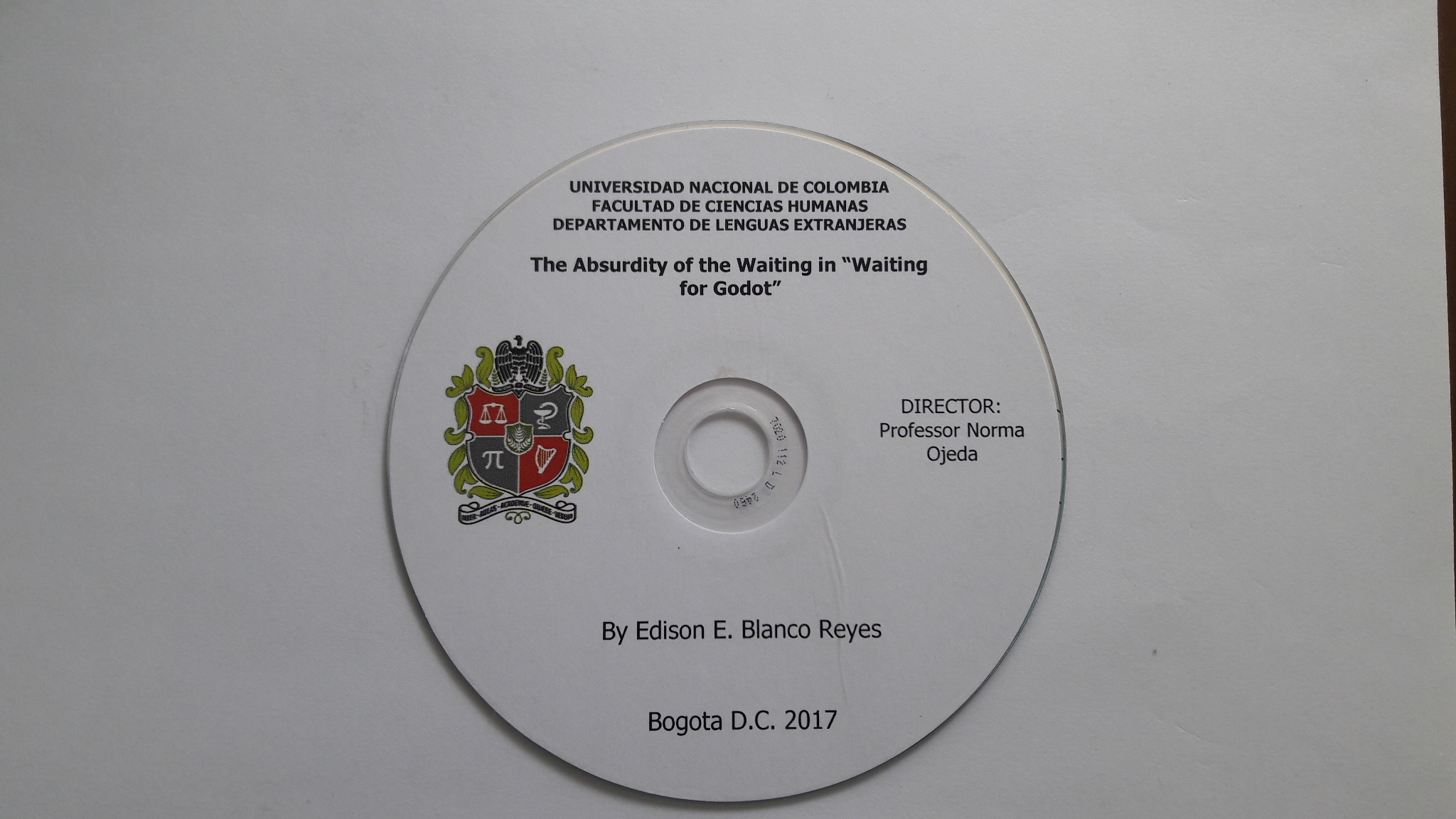
Abstract
This study identifies and interprets the “absurd†from a Camusian perspective in the aesthetics of “Waiting for Godot†and, particularly, its compositional form as the means for the realisation of the aesthetic act. The absurd is a term coined by French philosopher Albert Camus and used by critics to classify some works of art that explore, through the embodiment of concrete images, man’s reaction to the meaninglessness of existence. Different critics interpreted “Waiting for Godot†as absurd but from a philosophical point of view as it has many allusions to philosophy, but Beckett categorically refused these interpretations and instead, motivated people to see the play as it is. In this sense, this study argues that “Waiting for Godot†does not intend to explain the absurd but it uses the absurd as a principle of formal construction. It is through the shape of the absurd that the aesthetic act is fulfilled. The absurd—depicted as silence—takes the shape of the confrontation between human nostalgia—represented through the routines and constant wondering—and the irrational world—represented through the language failures and contradictions. This silence becomes the great revelation, it reveals that ultimately, we are all tied to the waiting.
Keywords
Compositional form, aesthetic act, nostalgia, irrational, silence
References
Adorno, T. W., & Jones, M. T. (1982, Spring). Trying to Understand Endgame. New German Critique , 26 , 119-150.
Bakhtin, M. M. (1990). Supplement: The Problem of Content, Material, and Form in Verbal Art. In Art and Answerability (Ser. 9, pp. 257-318). Austin: University of Texas Press.
Beckett, S. (1996, June 24). Who is Godot? The New Yorker , p. 136.
(2003). Molloy ; Malone dies ; The unnamable: Samuel Beckett trilogy. London: Calder.
(1954). Waiting for Godot. 841 Broadway New York, NY: Grove Press.
Camus, Albert. The Myth of Sisyphus and Other Essays. translated by Justin O’Brien.
Britten, A. M. (2012). Beckett, Barthelme, and Vonnegut: Finding Hope in Meaninglessness (Master’s thesis). Oregon State University.
Brodersen, E., Werner, J., Paller, M., Walsh, P., & Lenske, C. J. (2003). Words on Plays: Insights into the Play, the Playwright, and the Production Race by David Mamet . San Francisco: American Conservatory Theater.
Calderwood, J. L. (1986). Ways of Waiting in Waiting for Godot. Modern Drama , 29(3), 364-375
Camus, Albert. The Myth of Sisyphus and Other Essays. translated by Justin O’Brien. New York: Vintage Books, 1991. Translation originally published by Alfred A. Knopf, 1955.
Chatterjee, A. (2013). Camus‟ Absurdity in Beckett‟s Plays:Waiting for Godot and Krapp’s Last Tape . Lapis Lazuli – An International Literary Journal, 3(2), 186-196.
Cohn, R. (winter 1964). Philosophical Fragments in the Works of Samuel Beckett. Criticism , 6(1), 33-43. URL =< http://www.jstor.org/stable/23094159
Crowell, Steven, “Existentialism”, The Stanford Encyclopedia of Philosophy (Spring 2016 Edition), URL =<https://plato.stanford.edu/archives/spr2016/entries/existentialism
Deranty, Jean-Philippe, “Existentialist Aesthetics”, The Stanford Encyclopedia of Philosophy (Spring 2015 Edition), Edward N. Zalta (ed.)
DÃaz, William Fernando, 1970-Universidad Nacional de Colombia. Facultad de Ciencias Humanas: The Language of Silence: Adorno Reads Beckett , London Queen Mary Westfield College 1999
Dick, S., & Ellmann, R. (1989). Omnium Gatherum: Essays for Richard Ellmann . Gerrard Cross, Buck.: Colin Smythe
Durán, R. (2009, April). “En Attendant Godot” or ‘le Suicide Philosophique’: Beckett’s Play from the Perspective of Camus’s “Le Mythe de Sisyphe”. The French Review , 82 (5), 982-993.
Esslin, M. (1968). The Theatre of the Absurd, Revised and Enlarged Edition . Pelican Books.
Foley, J. (2008). Albert Camus: from the Absurd to Revolt . Stocksfield: Acumen.
Halloran, S. M. (1973, Spring). Language and the Absurd. Philosophy & Rhetoric , 6 (2), 97-108. URL: http://www.jstor.org/stable/40236838
Lenske, C. J. (2003). Symbols of Waiting . Words on Plays – Waiting for Godot , 21-23.
Moran, D. (2006) “Beckett and Philosophyâ€, in Christopher Murray (ed.), Samuel Beckett – One Hundred Years (Dublin: New Island Press), pp. 93–110.
Pouliquen de Vidal, Hélène “TeorÃa y Análisis SociocrÃtico†Bogotá Universidad Nacional de Colombia. Facultad de Ciencias Humanas 1992
Rodrigues, Roxane H., et al. “Bakhtin Circle’s Speech Genres Theory: Tools for a Transdisciplinary Analysis of Utterances in Didactic Practices.†Genre in a Changing World , Parlor Press and the WAC Clearinghouse, 2010, pp 295-316.
Wahl, J. A. (1949). A Short History of Existentialism . New York: Philosophical Library.
Weagel, D., & Cage, J. (2002). Silence in John Cage and Samuel Beckett: 4′ 33″ and “Waiting for Godot”. Samuel Beckett Today, 12, 249-262. Retrieved November 20, 2017, from http://www.jstor.org/stable/25781422
